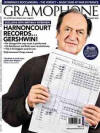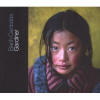Texte paru dans: / Appeared in:
*

GRAMOPHONE (01/2010)
Pour s'abonner /
Subscription information
Soli Deo Gratia
SDG 162

Code-barres /
Barcode:
0843183016228
Consultez toutes les évaluations recensées pour ce cd
~~~~ Reach all the evaluations located for this CD
Reviewer: Jonathan
Freeman-Attwood
Advent cantatas in which first-time Gardiner recordings take the plaudits
If the church year begins in Advent, Gardiner’s Pilgrimage had to wait until the home-straight of the millennial project before engaging with the six cantatas for the first and fourth Sundays. Out of sync, Bach was also faced with the challenge of Advent music in the midst of his first cycle of “a well-regulated church music”, having begun the series on arrival in Leipzig in early summer of 1723.
Sir John Eliot Gardiner’s concert in Cologne presents BWV61, 62 and 36 in a repeat triptych of his 1992 accounts (Archiv, 2/93). Now the regal opening of Bach’s first setting of Nun komm der Heiden Heiland has become articulated with an even greater gestural purpose, as indeed has the later, edgy and dramatic concerted setting.
The slower tempi here and in the other cantatas are largely governed by the resonant acoustic of St Maria im Kapitol. The performances from this leg of the tour provide welcome alternative readings to the earlier version (BWV36 perhaps rather less), which remains one of Gardiner’s most durable Bach studio recordings of cantatas; here the arias are altogether less lyrically inclined or characterised. Jan Kobow’s tame “Bewundert” from BWV62 is not a patch on Anthony Rolfe Johnson’s wonderful reading; only Dietrich Henschel’s purposeful call to arms of “Streite, siege” and the ingenious and delectable chorale-duet from BWV36 seem to improve on Gardiner’s previous encounter.
These are, all the same, creditable performances of three marvellous works but the visit to Lüneburg the next week brings rather more musical sustenance. The fluency and dramatic immediacy of Wachet! betet! (BWV70) is telling indeed, if without the pioneering zeal and nervous energy of Felix Prohaska or the embedded pronouncements of Fritz Werner. Most impressive is the panache and finely judged pacing of the subsequent movements – in which Henschel is again supreme. BWV132 receives an exceptional performance, the line led by soprano Brigitte Geller and Henschel with real class, and so too the ubiquitous Herz und Mund (BWV147). It is as powerful and effective a performance as you’re likely to hear of a perennial favourite.
Cliquez l'un ou l'autre
bouton pour découvrir bien d'autres critiques de CD
Click either button for many other reviews


